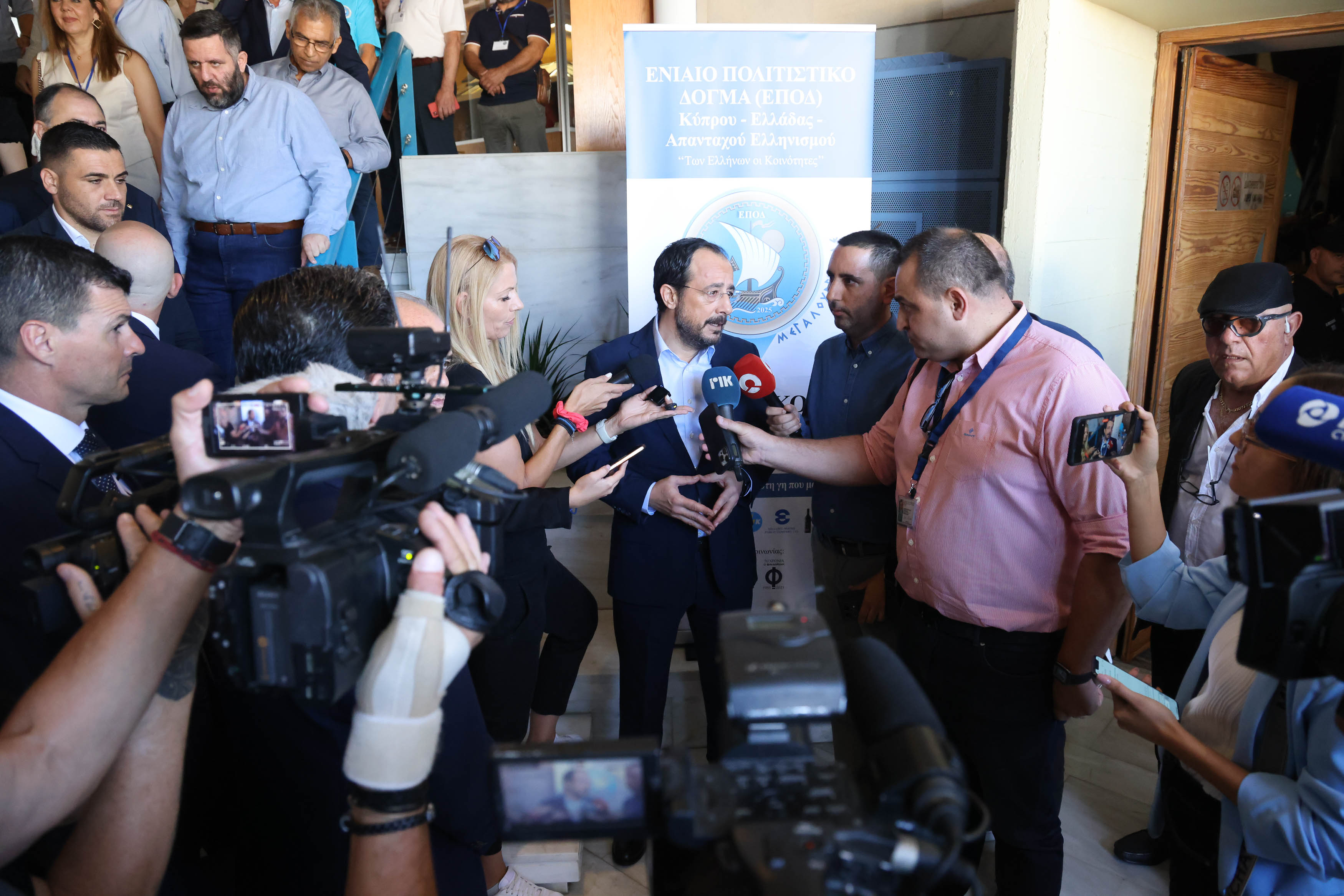Cyprus will take over the presidency of the EU Council on January 1, 2026, and our government has been making sure there is not a single person on the island who is not aware of it. Apart from this featuring in almost every speech President Nikos Christodoulides has made in the last three or four months, the government has also been bombarding us with a daily advertisement aimed at stirring national pride about its six-month role, as if it were an achievement of Cypriot daring or innovativeness.
The radio jingle, informs us that “we are members of the large European family and we have a voice, we belong, we participate.” More importantly, “now the time has come to lead.” After informing us that we would be formulating proposals and solutions, “at a time of critical developments and geopolitical challenges,” we are given the reason to feel proud. “At the centre of European decisions – equals, strong, proud. Europe in motion. Cyprus at the front.”
Would any person dealing with the stresses of daily existence, struggling to make ends, worrying about their family, feel any better because the Cyprus Republic will have the presidency of EU Council? Will being at the centre of European decisions make our lives better, improve quality of life, change our mood? The six months of the presidency will make absolutely no difference to the overwhelming majority of the people, only affecting officials and civil servants who will have to work much harder than usual.
The presidency is primarily an administrative responsibility and certainly not an opportunity to lead the EU as our government is telling us. The presidency chairs most of the Council’s meetings, committees and working parties and also organises formal and informal meetings, some of which are held in the host country. It also represents the Council in its dealings with other EU institutions, negotiating legislative texts with the European Parliament and dealing with the European Commission. As the website of the EU Council says, the presidency makes sure four things happen within the Council: continuity of the EU’s agenda, sound law-making, cooperation among member-states, cooperation/coordination among the other EU institutions.
The idea often mooted by President Christodoulides – and implied in the radio advert – that Cyprus would have a leading role and bring the EU closer to the Middle East and step up its involvement in our region, is not supported by practice. As the Council states, “the presidency translates EU priorities into concrete and formal decisions guided by the European Council” while the “EU leaders meet regularly to set the EU’s general political directions and priorities.” As for the Union foreign policy, this remains under the authority of the High Representative of Foreign Affairs and Security, who chairs the foreign affairs Council meeting.
There was none of this boastful exaggeration about the role Cyprus would play, the first time it had the presidency in 2012, when Demetris Christofias was president. It was a successful presidency, by all accounts, Cyprus carrying out all its administrative responsibilities efficiently and professionally, our civil servants, commendably, raising their game for the six-month period, without the fanfare and government showboating we are witnessing today. The government has even named the Brussels-based group that will do the presidency’s work ‘Team Cyprus 2026’ as if it were taking part in an international sporting event.
Communication and positive spinning are what the Christodoulides government does best, but this will not be enough to have a successful presidency. We will have a successful presidency if our government and ‘Team Cyprus 2026’ focus on the smooth running of the Council, something that will be achieved through strong organisation, very good coordination, attention to detail and hard work. This was the focus of the government in 2012, and despite Cyprus having been an EU member for just eight years, its presidency run very smoothly.
Cyprus has now been a member of the EU for more than 20 years and our technocrats know much more about how things work in the Union than they did in 2012, but this does not mean that they will be able to forge the Union’s relations and partnerships with other countries like our president is suggesting. For a successful presidency we do not need grand plans and visions, but focus and a practical mindset.






Click here to change your cookie preferences